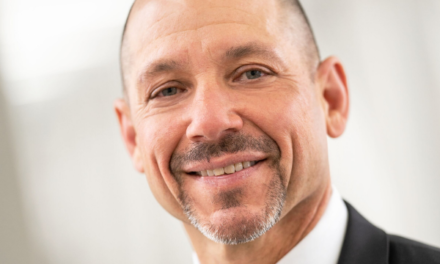
Researchers to explore new treatments for pancreatic cancer
Medical College of Wisconsin
News Release
Medical College of Wisconsin For more information, contact:
Office of Public Affairs Maureen Mack (mmack@mcw.edu)
8701 Watertown Plank Road Director of Media Relations
Milwaukee, WI 53226 Cellular: 414-750-5266
Fax (414) 955-6166 Office: 414-955-4744
For immediate release
July 17, 2014
The Medical College of Wisconsin (MCW) has received a five-year, $2.6 million grant from the National Institutes of Health’s National Cancer Institute to study new therapeutic approaches to treat pancreatic cancer.
Michael Dwinell, Ph.D., associate professor of microbiology and molecular genetics at MCW; and Balaraman Kalyanaraman, Ph.D., Harry R. & Angeline E. Quadracci Professor in Parkinson’s Research and the professor and chairman of biophysics at MCW; are co-principal investigators of the grant.
About 46,000 people in the United States will be diagnosed with pancreatic cancer this year. Pancreatic ductal carcinoma, which comprises 90 percent of those cases, is a highly aggressive cancer. A combination of radiation, chemotherapy and surgical options can extend survival time, but there is no consistently successful treatment.
Emerging research in cancer therapy is focused on exploiting the differences between cancer cell metabolism and normal cell metabolism. Metastasis of cancer, or the proliferation of cancerous cells, is the mechanism by which cancer spreads through the body, eventually leading to the patient’s death.
In this project, the researchers will work to develop new methods of slowing or halting the metastasis of cancer cells by investigating a combination of energy metabolism inhibitors with relatively nontoxic mitochondria- targeted drugs. The results will advance researchers’ understanding of the roles of metabolism and energy in pancreatic cancer malignancy. Further, it could lead to the design and testing of new drugs that would halt the energy production of malignant cells, and ultimately lead to new therapies to treat pancreatic cancer.
Other MCW investigators involved in the research include Susan Tsai, M.D., M.H.S., assistant professor of surgery (co-investigator); Douglas Evans, M.D., Donald C. Ausman Family Foundation Professor chairman of surgery at MCW (consultant); Alexander Craig Mackinnon, M.D., Ph.D., assistant professor of pathology at MCW (consultant). Other MCW personnel include Gang Cheng, Ph.D., research scientist I in biophysics; Jacek Zielonka, Ph.D., research scientist II in biophysics; Ishan Roy, research assistant in the Medical Student Training Program; Donna McAllister, research associate I in biophysics and microbiology and molecular genetics, and Kris Dilkey, laboratory technician III in microbiology and molecular genetics.
This project will also be conducted with the National Cancer Institute intramural researchers Murali Krishna Cherukuri, Ph.D., head, biophysical spectroscopy section, Radiation Biology Branch, NCI; and Peter Choyke, M.D., F.A.C.R., chief, molecular imaging program, Center for Cancer Research, NCI, who will consult on the project.
About the Medical College of Wisconsin
The Medical College of Wisconsin is the state’s only private medical school and health sciences graduate school. Founded in 1893, it is dedicated to leadership and excellence in education, patient care, research and community engagement. More than 1,200 students are enrolled in the Medical College’s medical school and graduate school programs in Milwaukee. New regional medical education campuses are scheduled to open in Green Bay in 2015, and in Central Wisconsin in 2016, with each recruiting initial classes of 15-20 students. A major national research center, MCW is the largest research institution in the Milwaukee metro area and second largest in Wisconsin. In FY 2012-13, faculty received approximately $160 million in external support for research, teaching, training and related purposes, of which approximately $144 million is for research. This total includes highly competitive research and training awards from the National Institutes of Health (NIH). Annually, College faculty direct or collaborate on more than 2,000 research studies, including clinical trials. Additionally, more than 1,350 physicians provide care in virtually every specialty of medicine for more than 425,000 patients annually.





